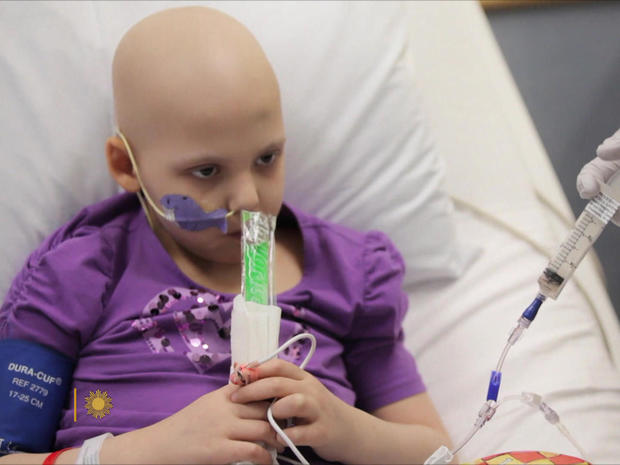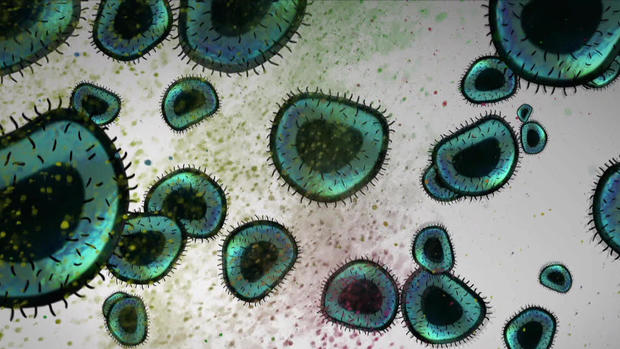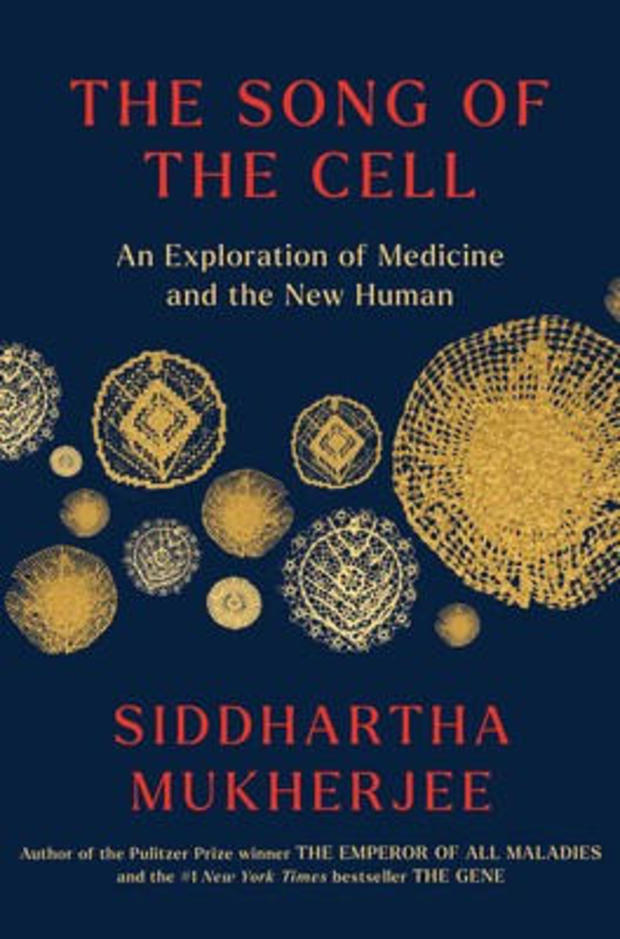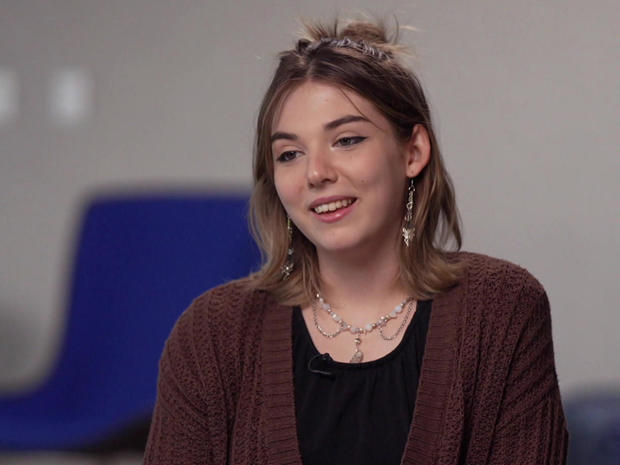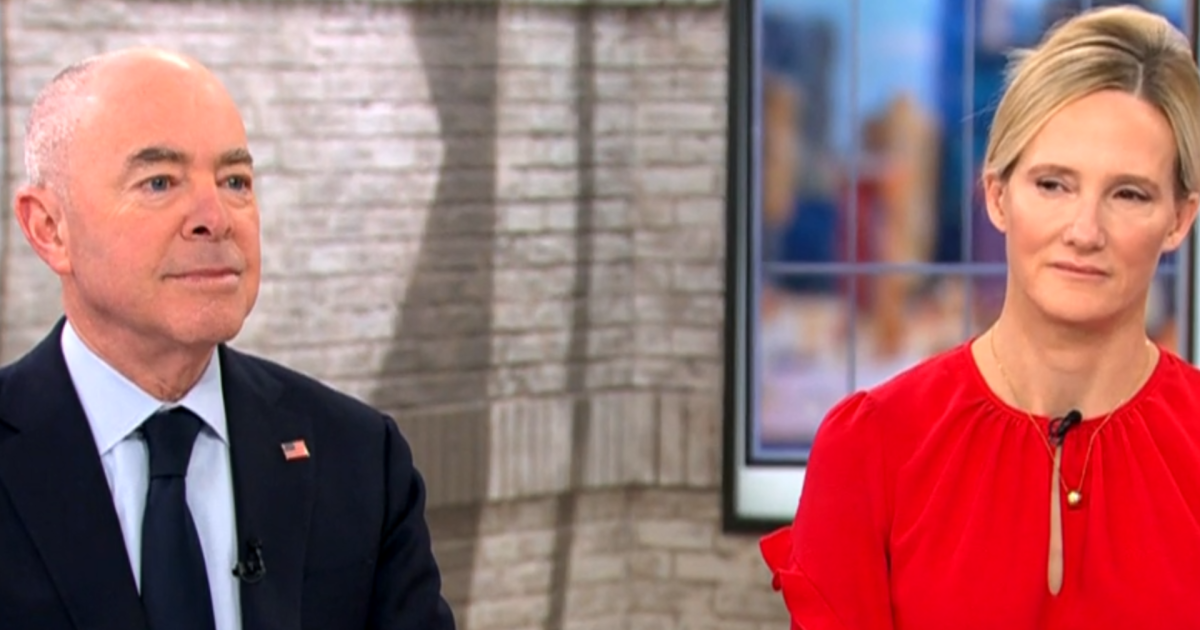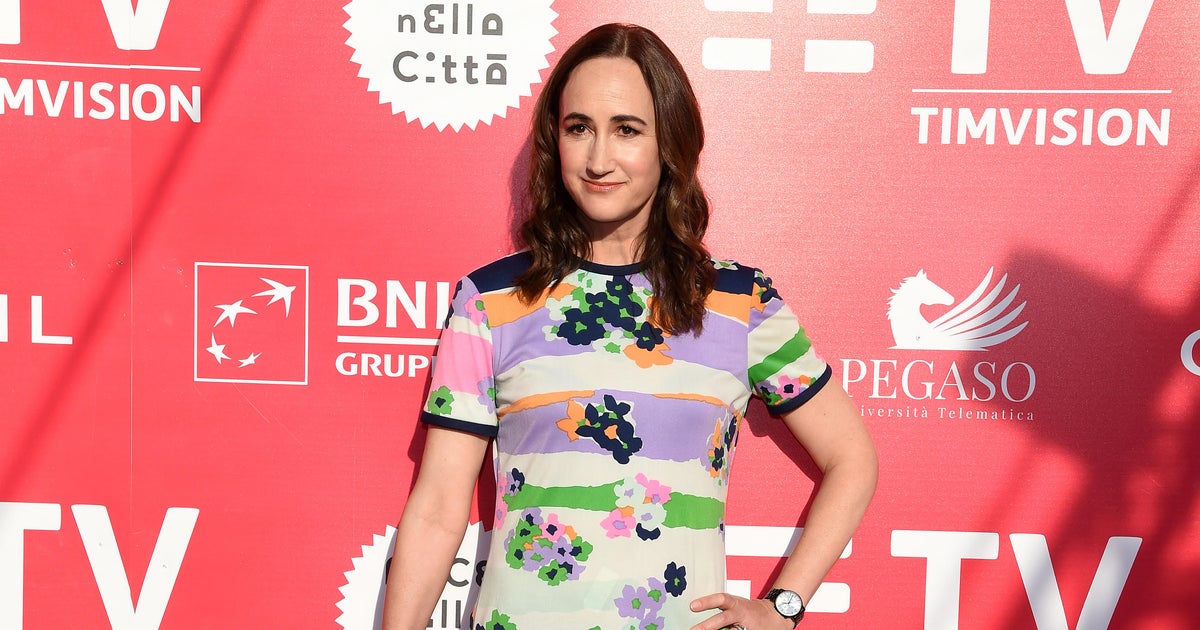How an experimental treatment beat a little girl's cancer
Emily Whitehead has a secret weapon: "My T-cells, part of my immune system, were trained to fight and kill my cancer."
She was only six when she became the first child ever to receive genetically-modified T cells. The experimental treatment cured her leukemia, and the success of her case has allowed all kinds of cellular therapies to be developed. "Kind of made me feel like a superhero or something," she laughed.
She was treated at Children's Hospital of Philadelphia, eventually. But first, Emily had chemotherapy at her local hospital. Chemotherapy cures kids with her kind of leukemia 90% of the time. Emily relapsed, and after a second round, she relapsed again.
"She had 22 months of chemotherapy," said her mother, Kari Whitehead.
Her father, Tom Whitehead added, "She had every off-the-shelf chemotherapy that they could throw at her cancer."
Emily's parents watched as these two rival forces – cancer and chemotherapy – attacked their daughter's body. Trained as a dietician, Kari studied the medical research. Tom relied on his faith, and his gut.
"They wanted to give her a regimen of chemotherapies," he recalled. "Kari had researched it and said, 'You know, that could possibly destroy her kidneys. Then she's gonna need a kidney transplant.' My inner voice was screaming, 'Don't do that today.'"
The Whiteheads checked their daughter out of the hospital and drove two hours to Philadelphia. "We weren't positive we were doing the right thing," said Tom. "We were just trusting our instincts."
"She was in very, very deep medical trouble," said Dr. Siddhartha Mukherjee, a leading cancer specialist and researcher at Columbia University in New York, and the Pulitzer Prize-winning author of "The Emperor of All Maladies: A Biography of Cancer." His latest book, "The Song of the Cell: An Exploration of Medicine and the New Human" (published by Simon & Schuster, a division of our parent company, Paramount Global), highlights Emily's case, among others.
"The Children's Hospital of Philadelphia had a program to take these CAR-T cells and direct them against the cancer that Emily had," Mukherjee said.
A T cell normally kills invaders, like viruses. Chimeric antigen receptor T (or CAR-T) cells had been modified in a lab to attack Emily's leukemia cells. "Now, this T cell has a little flag or a harpoon. And they grow them in the lab, they grow them to very large numbers, and then they infuse them back into Emily."
The clinical testing had just started. Emily would be the first pediatric case.
"Sunday Morning" contributor Kelefa Sanneh said to Kari, "You're used to reading studies about these therapies. But for this one, it had never been done."
"No. I couldn't find really anything on it at all," she replied.
At first, Emily was doing well. But suddenly, Tom said, "Just the most horrific things you can ever think of. The ventilator's, you know, pounding on her. It would thump in the room to shake stuff loose in her lungs. And there's actually blood coming out of her mouth. She was having multi-organ failure. They were saying to us, 'Something really bad's gonna happen soon. Do you want us to stop?' I said, 'Don't stop.'"
Mukherjee said, "What happened in Emily's case is that there was so much cancer in her body that we build in an amplification signal, so that the more they harpoon, the more angry they get, so there they are, getting angrier and angrier and angrier, and at a certain point of time your body can't tolerate this angry rampage."
"It's getting hit by friendly fire," Sanneh said.
"And it can be a death sentence."
Mukherjee said that one of Emily's doctors took a chance on a drug that might stop this "rampage."
Kari recalled: "They finally came in and said that they had this medicine that they wanted to try. It hadn't been tried in this situation before. But they thought that maybe it could make a difference. And within a couple of hours, we started to see changes where all of a sudden, we thought, 'Wait a minute. She seems to be getting better.'"
"And it was literally nurses going out, pulling other nurses in here, and we can hear them saying, 'This is unbelievable. Never have seen anything like this,'" said Tom.
Kari said, "I couldn't believe it, because what was the chance that this was gonna work?"
Emily woke from a 14-day coma on her seventh birthday. And a few days later, Kari saw Tom staring at his phone: "And I thought that it was bad news. I thought that the doctor had called him to say maybe she had more cancer, maybe they found a tumor. And he said, 'They cannot find one cancer cell.'"
Her story has been turned into a documentary, "Of Medicine and Miracles."
Mukherjee said, "We learned from Emily's case. We learned what to do, how to do it, and it's touch-and-go. Too much can be wrong. Too little can be wrong. Every piece of it is faith, luck, and our dependence on patients."
Sanneh asked, "People used to say that we were living in the antibiotic age, and then that we were living in the vaccine age. Are we now living in the cell therapy age?"
"We're just beginning to live in the cell therapy age," Mukherjee replied. "As we enter and manipulate more and more cells, cells in the cartilage, cells in the pancreas, to cure type 1 diabetes, potentially cells in the brain to cure depression and schizophrenia, we are living in an age where cells have become an amenable unit of therapy."
And Emily Whitehead is living her teenage life. She's now in her senior year of high school.
Sanneh asked, "Is it hard for you now to watch that footage of you with no hair, in pain, suffering, going through these treatments?"
"It's not hard for me now," she said. "I kind of enjoy watching those videos because it shows how far that I've come since then."
"Do you ever imagine what it would be like to have been able to tell that little girl, 'This story actually has a happy ending'?"
"I don't even know what I would tell her today, how I could explain what's happened since then. But honestly, my dad was very optimistic. And I would probably tell her to listen to him!"
READ AN EXCERPT: "The Song of the Cell" by Siddhartha Mukherjee
For more info:
- "The Song of the Cell: An Exploration of Medicine and the New Human" by Siddhartha Mukherjee (Scribner), in Hardcover, eBook and Audio formats, available via Amazon, Barnes & Noble and Indiebound
- siddharthamukherjee.com
- Emily Whitehead Foundation
- "Praying for Emily: The Faith, Science, and Miracles that Saved Our Daughter" by Tom, Kari and Emily Whitehead, with Danelle Morton (Worthy Books), in Hardcover, Trade Paperback and eBook formats, available via Amazon, Barnes & Noble and Indiebound
- The documentary "Of Medicine and Miracles" will screen November 5 at the Centre Film Festival at the Rowland, Philipsburg, Pa.
Story produced by Mary Raffalli. Editor: Carol Ross.
See also:
